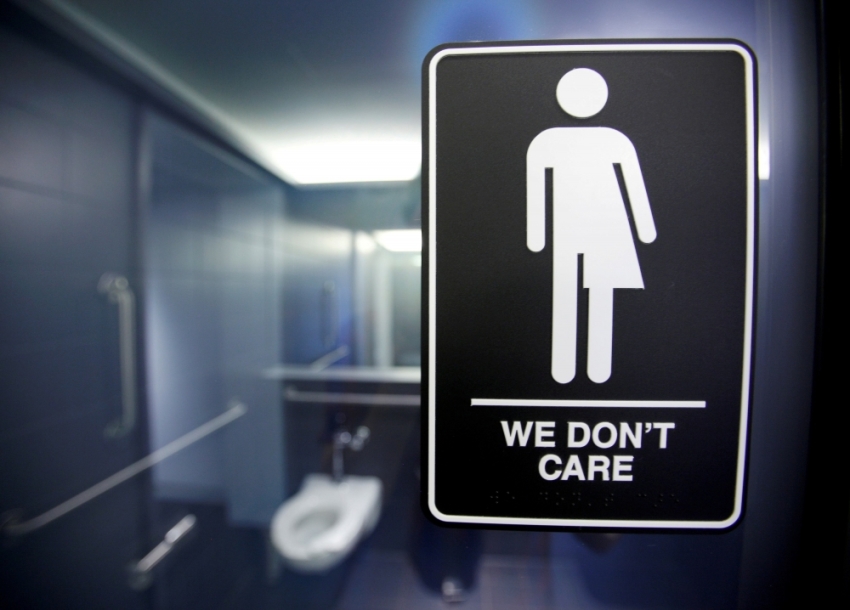NCAA Ends North Carolina Championship Boycott After Repeal of Bathroom Bill

The National Collegiate Athletic Association is being accused of putting "a seal of approval on state-sanctioned discrimination" after it announced the end of its boycott on hosting championship events in the North Carolina because of the state's recently repealed controversial transgender bathroom law.
In a statement issued Tuesday, it was announced that the NCAA board of governors reviewed the legislative changes made by North Carolina lawmakers last week in repealing the highly controversial H.B. 2 and replacing it with another law that critics say doesn't go far enough to protect the rights of LGBT people.
Although liberal activists are still up in arms about the state's policy and have warned the NCAA not to be "fooled" by the changes, a majority of NCAA board members "reluctantly voted" to allow North Carolina be considered once again in bids to host championship events.
"The NCAA championships previously awarded to North Carolina for 2017-18 will remain in the state," the statement reads. "The board, however, directs that any site awarded a championship event in North Carolina or elsewhere be required to submit additional documentation demonstrating how student-athletes and fans will be protected from discrimination."
The move comes after the board of governors ordered NCAA championship events scheduled to be hosted in North Carolina during the 2016-2017 season to be relocated because of H.B. 2, a law that forced people to use state-run bathrooms consistent with their biological sex and outlawed the creation of local ordinances that forced businesses to allow transgender individuals into bathrooms, locker rooms and showers consistent with their gender identity. The law also included language on non-discrimination protections that didn't include gender identity or sexual orientation.
The NCAA gave North Carolina a deadline to change its law or risk being dropped from consideration to host championship events through 2022. North Carolina lawmakers met that deadline when they passed House Bill 142 last week, which repealed H.B. 2, returned state bathroom policy to the status quo before H.B. 2 and left intact a ban on local transgender bathroom ordinances until 2020.
Although the long-debated H.B. 2 had been repealed, LGBT activists criticized the new the law, stating that it "doubles-down on discrimination" and that it is "simply another version of H.B. 2."
"We have been assured by the state that this new law allows the NCAA to enact its inclusive policies by contract with communities, universities, arenas, hotels, and other service providers that are doing business with us, our students, other participants, and fans," the NCAA's statement adds. "Further, outside of bathroom facilities, the new law allows our campuses to maintain their own policies against discrimination, including protecting LGBTQ rights, and allows cities' existing nondiscrimination ordinances, including LBGTQ protections, to remain effective."
"[T]his new law has minimally achieved a situation where we believe NCAA championships may be conducted in a nondiscriminatory environment," the statement continues. "If we find that our expectations of a discrimination-free environment are not met, we will not hesitate to take necessary action at any time."
Pastor Mark Creech, executive director of the Christian Action League of North Carolina, accused the NCAA of "breathtaking hypocrisy," since it uses many venues with the same bathrooom use policies as North Carolina outside of the state.
"With [NCAA] assistance, everything now is politicized, even intercollegiate athletics. They've arguably violated their non-profit status, and figuratively speaking, held North Carolina politics, as well as its economy, hostage to the point of a gun," he added in a statement.
Family Research Council President Tony Perkins suggested that either the NCAA was getting out of the business of lobbying for public policy or is now choosing to "ignore the small but rowdy agitators on the Left who've used the NCAA to fight their losing political battle over the state's public safety bill."
"Outside of North Carolina, the news resonated. Not only did the NCAA buck the radical left, but it gave a big boost to privacy acts like Texas's," Perkins wrote about a bill in Texas that is similar to North Carolina law that would ban local ordinances from passing transgender bathroom ordinances.
Texas Sen. Lois Kolkhorst, who introduced the Texas Privacy Act, issued a statement on the NCAA's decision.
"I also applaud the NCAA for now agreeing that there is nothing discriminatory about the Texas Privacy Act or our honest efforts to address the serious issue of privacy and safety in our public facilities and school showers, locker rooms, and restrooms," she said.
Chris Sgro, the executive director of the the LGBT group Equality NC, also claimed that the NCAA's move "put a seal of approval on state-sanctioned discrimination."
"It is disappointing to see the NCAA backpedal after it stood strong against the deeply discriminatory HB2," Chris Sgro said in a statement. "HB142 continues the same discriminatory scheme put forward by HB2 and does little to protect the NCAA's players, employees, and fans."



























